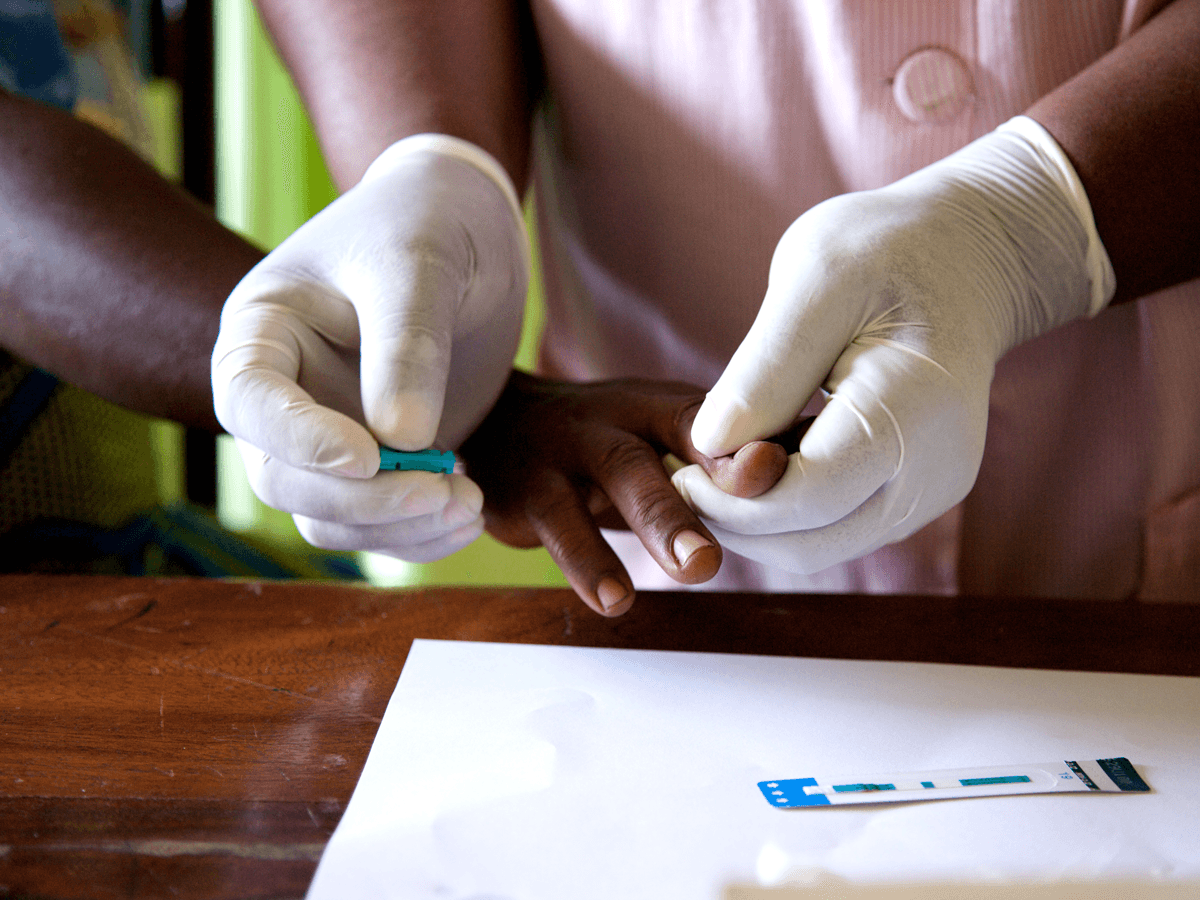Disease surveillance to stop HIV transmission in its tracks. Remarkable progress has been made toward HIV epidemic control in some high-burden countries, but many gaps remain. Identifying people with undiagnosed HIV infection, especially those who have been recently infected, is essential to realize the individual benefit of rapid treatment initiation and to prevent HIV transmission to others. A rapid HIV test that can distinguish a recent HIV-1 infection (acquired within the last 12 months) from a long-term infection now offers new opportunities to improve the health of people living with HIV and to advance public health efforts toward epidemic control. ICAP is working in collaboration with CDC, ministries of health, and local organizations to roll out rapid HIV recency testing in selected high-burden countries as part of a comprehensive approach to respond to the HIV epidemic.
-
Filter
-
U
- All Projects
- Current
- Upcoming
- Past
- Multi-Country
-
Country +
- Angola
- Bahrain
- Belarus
- Botswana
- Brazil
- Bronx
- Burkina Faso
- Burundi
- Cameroon
- Central Asia
- China
- Colombia
- Colombia and Peru
- Congo Brazzaville
- Cote d’ Ivoire
- Democratic Republic of the Congo
- Egypt
- El Salvador
- Eswatini
- Ethiopia
- Georgia
- Ghana
- Guatemala
- Haiti
- Harlem
- Honduras
- India
- Kazakhstan
- Kenya
- Kyrgyz Republic
- Kyrgyzstan
- Lesotho
- LesothoMalawi
- Liberia
- Malawi
- Mali
- Mauritania
- Mozambique
- Myanmar
- Namibia
- Nigeria
- Panama
- Peru
- Philippines
- Russia
- Rwanda
- Senegal
- Sierra Leone
- South Africa
- South Sudan
- Tajikistan
- Tanzania
- Thailand
- Uganda
- Uganda Refugees
- Ukraine
- United States
- Uzbekistan
- Vietnam
- Zambia
- Zimbabwe
Status
Multi-Country, Past, Current
Locations
Our Approach
Research
Health Challenges
HIV/AIDS
Funders
PEPFAR through CDC





